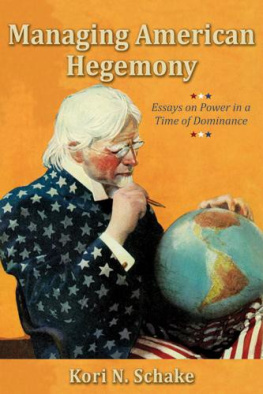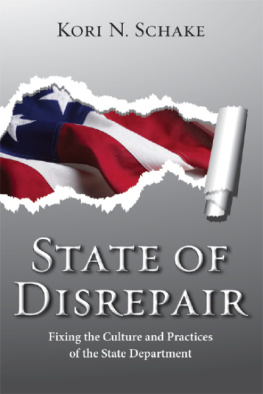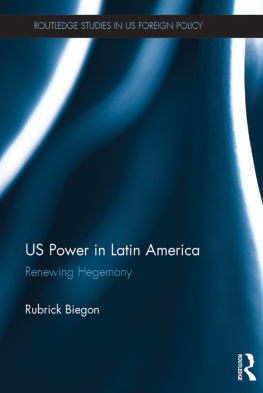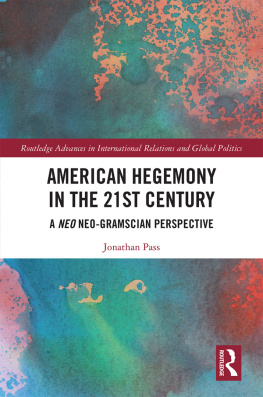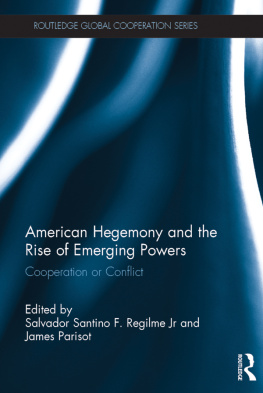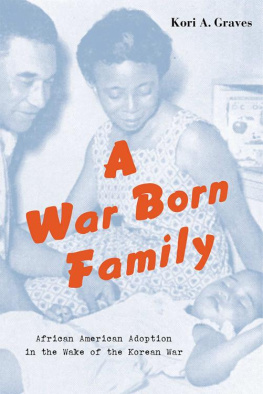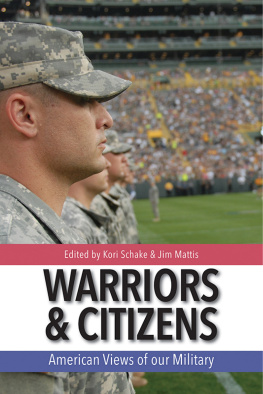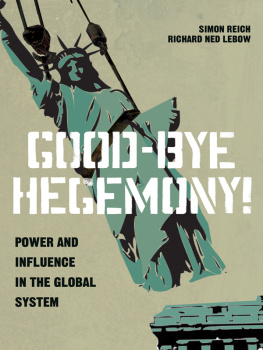Kori N. Schake - Managing American Hegemony: Essays on Power in a Time of Dominance
Here you can read online Kori N. Schake - Managing American Hegemony: Essays on Power in a Time of Dominance full text of the book (entire story) in english for free. Download pdf and epub, get meaning, cover and reviews about this ebook. year: 2008, publisher: Hoover Press, genre: Politics. Description of the work, (preface) as well as reviews are available. Best literature library LitArk.com created for fans of good reading and offers a wide selection of genres:
Romance novel
Science fiction
Adventure
Detective
Science
History
Home and family
Prose
Art
Politics
Computer
Non-fiction
Religion
Business
Children
Humor
Choose a favorite category and find really read worthwhile books. Enjoy immersion in the world of imagination, feel the emotions of the characters or learn something new for yourself, make an fascinating discovery.
- Book:Managing American Hegemony: Essays on Power in a Time of Dominance
- Author:
- Publisher:Hoover Press
- Genre:
- Year:2008
- Rating:5 / 5
- Favourites:Add to favourites
- Your mark:
- 100
- 1
- 2
- 3
- 4
- 5
Managing American Hegemony: Essays on Power in a Time of Dominance: summary, description and annotation
We offer to read an annotation, description, summary or preface (depends on what the author of the book "Managing American Hegemony: Essays on Power in a Time of Dominance" wrote himself). If you haven't found the necessary information about the book — write in the comments, we will try to find it.
Kori N. Schake: author's other books
Who wrote Managing American Hegemony: Essays on Power in a Time of Dominance? Find out the surname, the name of the author of the book and a list of all author's works by series.
Managing American Hegemony: Essays on Power in a Time of Dominance — read online for free the complete book (whole text) full work
Below is the text of the book, divided by pages. System saving the place of the last page read, allows you to conveniently read the book "Managing American Hegemony: Essays on Power in a Time of Dominance" online for free, without having to search again every time where you left off. Put a bookmark, and you can go to the page where you finished reading at any time.
Font size:
Interval:
Bookmark:

Stanford, California, 94305-6010
Leland Stanford Junior University
All rights reserved. No part of this publication may be reproduced, stored in a retrieval system, or transmitted in any form or by any means, electronic, mechanical, photocopying, recording, or otherwise, without written permission of the publisher and copyright holders.
15 14 13 12 11 10 09 9 8 7 6 5 4 3 2 1
 The paper used in this publication meets the minimum requirements of the American National Standard for Information SciencesPermanence of Paper for Printed Library Materials, ANSI/NISO Z39.48-1992.
The paper used in this publication meets the minimum requirements of the American National Standard for Information SciencesPermanence of Paper for Printed Library Materials, ANSI/NISO Z39.48-1992.Schake, Kori N.
Managing American hegemony : essays on power in a time of dominance /
Kori N. Schake.
p. cm. (Hoover Institution Press publication series ; 563)
Includes bibliographical references and index.
ISBN 978-0-8179-4901-3 (hardback : alk. paper)
ISBN 978-0-8179-4902-0 (pbk. : alk. paper)
1. United StatesForeign relations2001 . 2. HegemonyUnited States. I. Title.
JZ1480.s33 2009
327.73 dc22 2008007267
Tad and Diane Taube Director
Hoover Institution
Stanford University
Font size:
Interval:
Bookmark:
Similar books «Managing American Hegemony: Essays on Power in a Time of Dominance»
Look at similar books to Managing American Hegemony: Essays on Power in a Time of Dominance. We have selected literature similar in name and meaning in the hope of providing readers with more options to find new, interesting, not yet read works.
Discussion, reviews of the book Managing American Hegemony: Essays on Power in a Time of Dominance and just readers' own opinions. Leave your comments, write what you think about the work, its meaning or the main characters. Specify what exactly you liked and what you didn't like, and why you think so.

